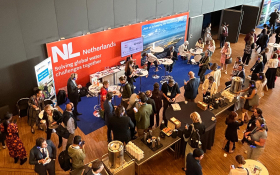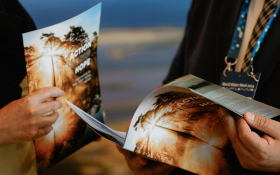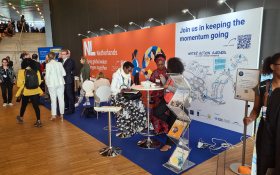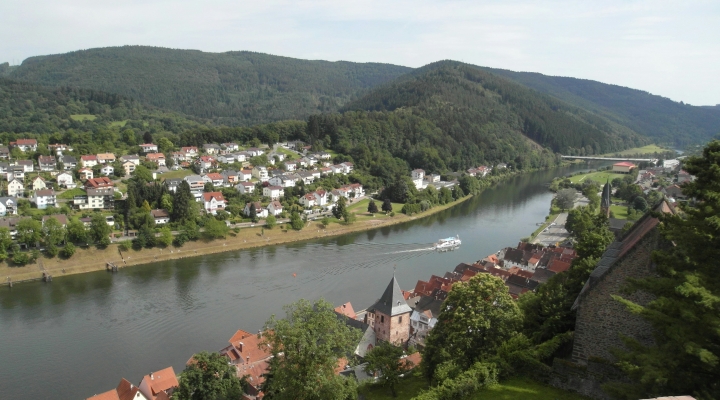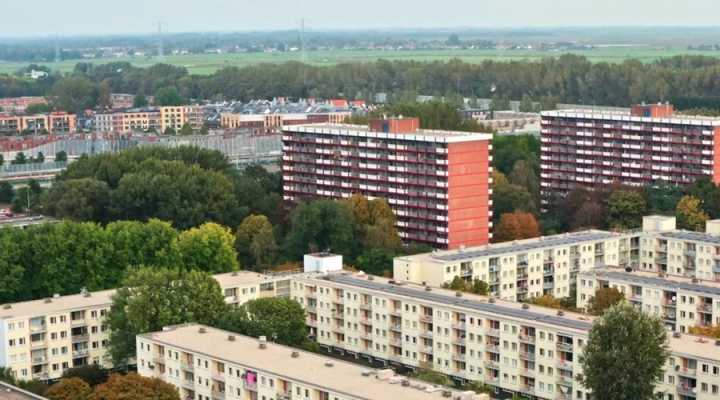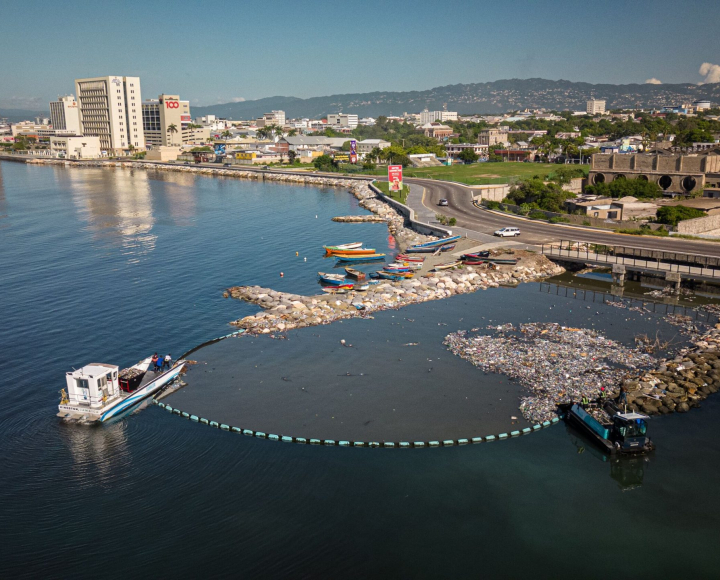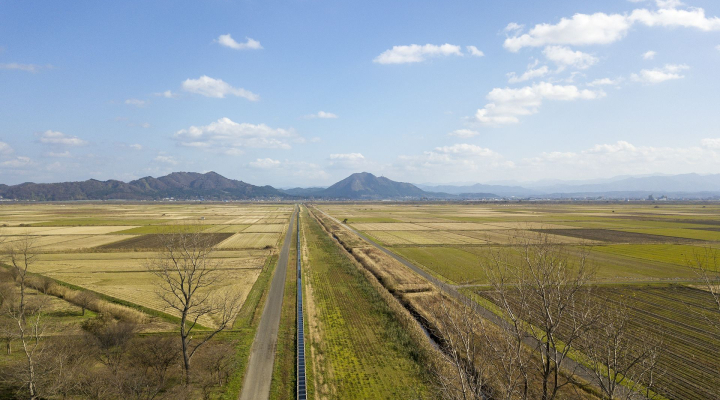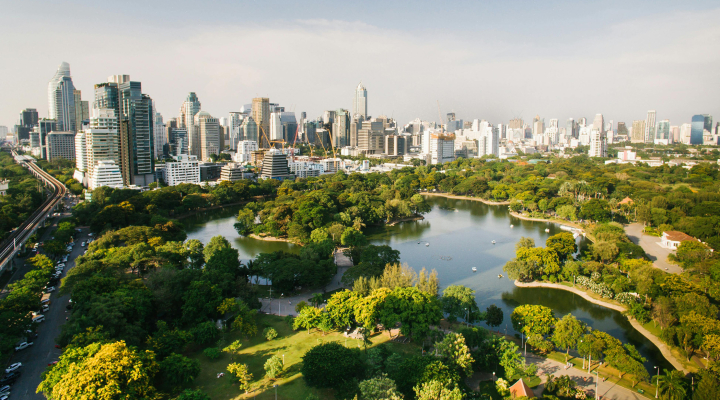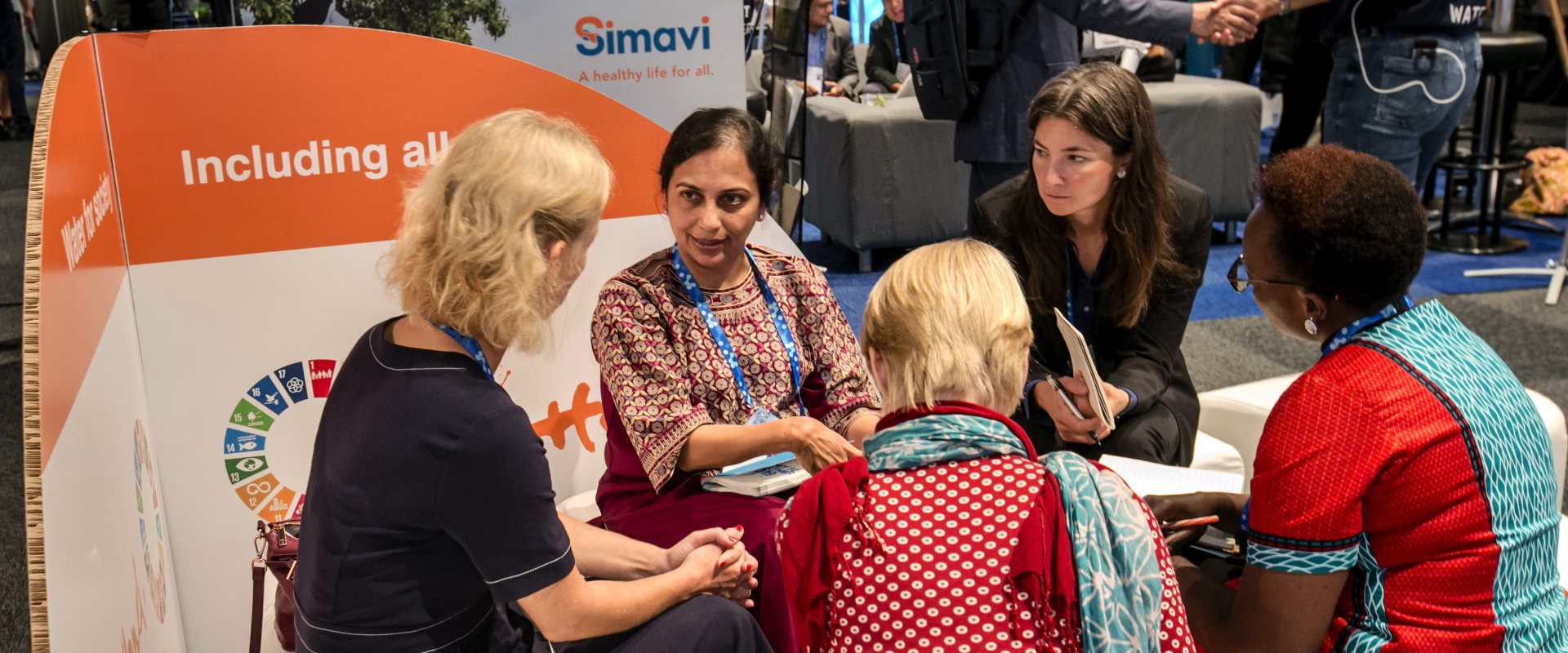
Stockholm World Water Week 2019: A look back on Dutch support for SDG6 goals
More than ever, this year's Stockholm World Water Week showed the awareness of the global water community that water resources need more protection urgently. A large Dutch delegation was present all week to contribute with knowledge and experiences to solve the increasing global water issues. Below a selection of photos of some of the Dutch related contributions.
Large scale interventions
More and more satellites circle the earth daily and the massive amount of real time images they send down, show the deterioration of seas, rivers, lakes and ground water aquifers. This deterioration comes at a time of increasing water demands because of growing economies, a growing world population and more extreme weather events. At the latest edition of the Stockholm World Water Week this created a new sense of urgency. With only 11 years to go to reach Sustainable Development Goal 6 on water, the global water community is aware that the time for large scale intervention has become more predominant than ever before.
Leaving no one behind
The theme of this year's Stockholm World Water Week was ’Including all’, addressing the focus on marginalized groups that need special attention when it comes down to universal access at clean water and sanitation. These groups will be hard to reach and it will take representatives to sit around the table with governments and local community leaders to discuss new designs of water and sanitation facilities with wider accessibility.
Better valuing of water
The Dutch delegation contributed to several sessions on financing of all those new water facilities. Existing water utilities lack the financing to realize such enormous expansion of the their water networks by 2030. The buzz word at the Stockholm World Water Week was blended finance. Combining public money from taxes and tariffs, special loans from development banks, donor money and private financiers, the huge financial gap may be closed and bring scale to the implementation of water projects.
Below a selection of photos, giving an impression of the event and Dutch related contributions.
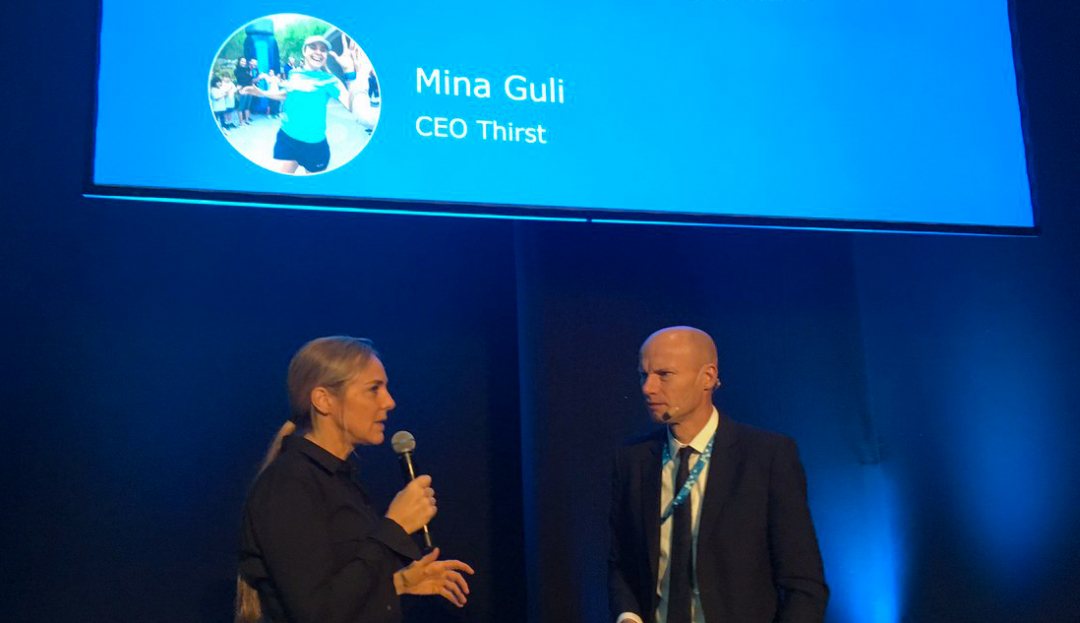
Growing concern over degrading water bodies
Water pollution and over-extraction causes water bodies to degrade and eventually limits the supply of clean fresh water that is needed for nature and water users. At the session on valuing water, Dutch water envoy Henk Ovink (right) talked with Mina Guli (left), an Australian businesswoman, who raised awareness for water scarcity with an attempt to run 100 marathons in 100 days but was forced to stop on day 63 with a broken leg. Guli told that running on what used to be the bottom of the Aral Sea, impressed her deeply. In 40 years the lake has lost 90 percent of its size and gradually ruined the lives of the people that worked in the once so flourishing shipping and fisheries sector. The people at the Aral Sea Guli who she spoke to, have socially been hit hard because the flow in the two rivers to sustain the Aral Sea have been neglected. According to Guli the disaster could have been prevented if the resource would have been valued more.
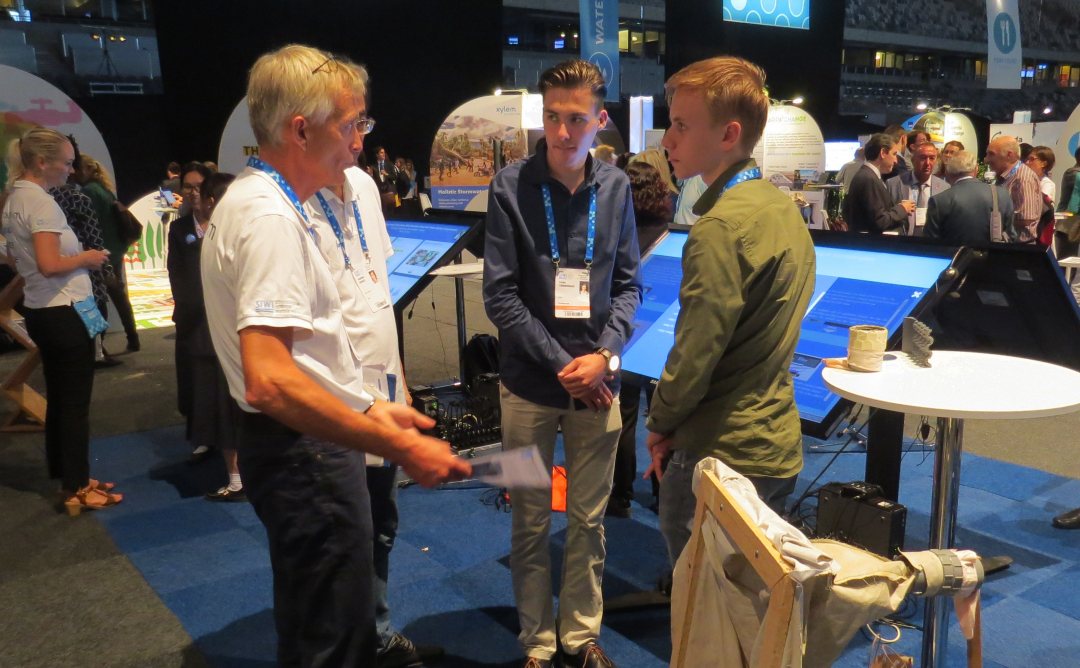
‘Banana trap' for micro plastics
This year’s Dutch entry for the Junior Water Prize featured a filter to remove micro plastics, ranging in size from 0,05 to 5 mm, from surface water. Two college students, Lucas Timmerman and Thomas Velders, developed a filter that captures the very small sized micro plastics and a storage bag. There banana-shaped bag (on photo in foreground) has a valve to prevent the plastic from escaping the bag. The two Dutch students had a hard job to convince the jury as they had gathered only little test results so far.
The winner of this year’s Stockholm Junior Water Prize was Machinley Butson from Australia for her ultraviolet radiation sticker to measure solar UV-exposure in a UV-filtration process.
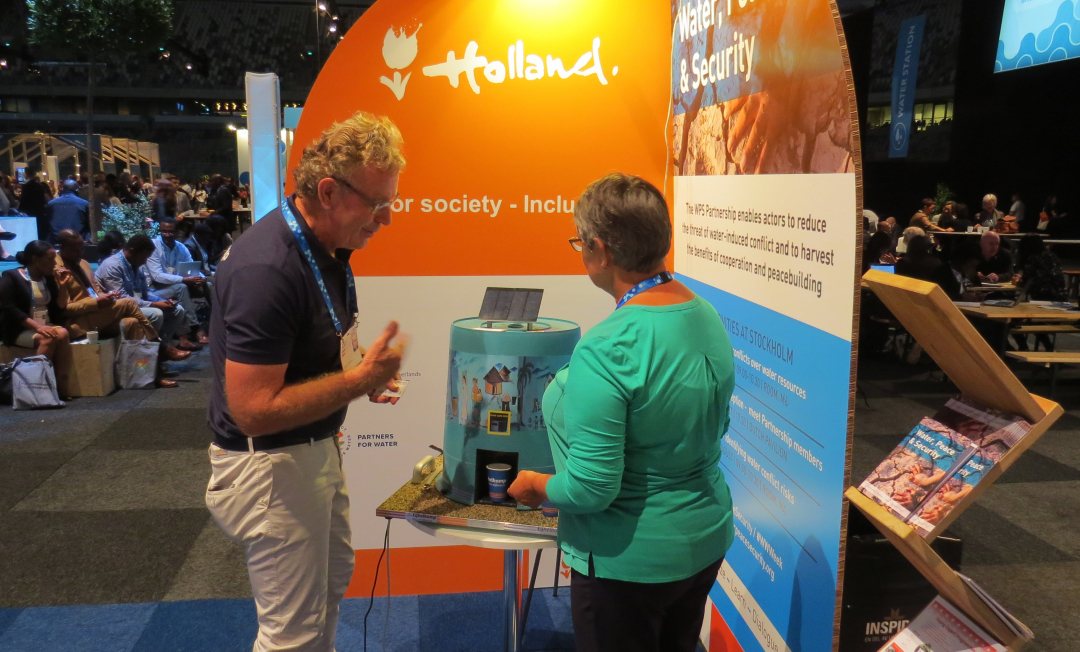
Unemployed graduates as water entrepreneurs
The Eijkelkamp foundation has built 30 water access point in Benin that are managed by graduates that were unemployed. Albert Post (left) of Eijkelkamp showed at the Dutch pavilion a mock-up of an access point that can be installed on any drill hole for ground water. Optionally the facility can be equipped with a prepaid payment system. Eijkelkamp has the ambition to build 160 water access points in Benin, providing employment to 40 water entrepreneurs to run these off-the-grid water facilities. Showing the mock up, Post told that the water entrepreneurs have a difficult task to convince the local people to pay for clean water, when they are accustomed to get their water for free at a natural water resource. However, these water resources are often polluted, causing health problems. Water entrepreneurs get a bonus when they are successful in attracting more clients by convincing the clean water will eventually save them health care costs.
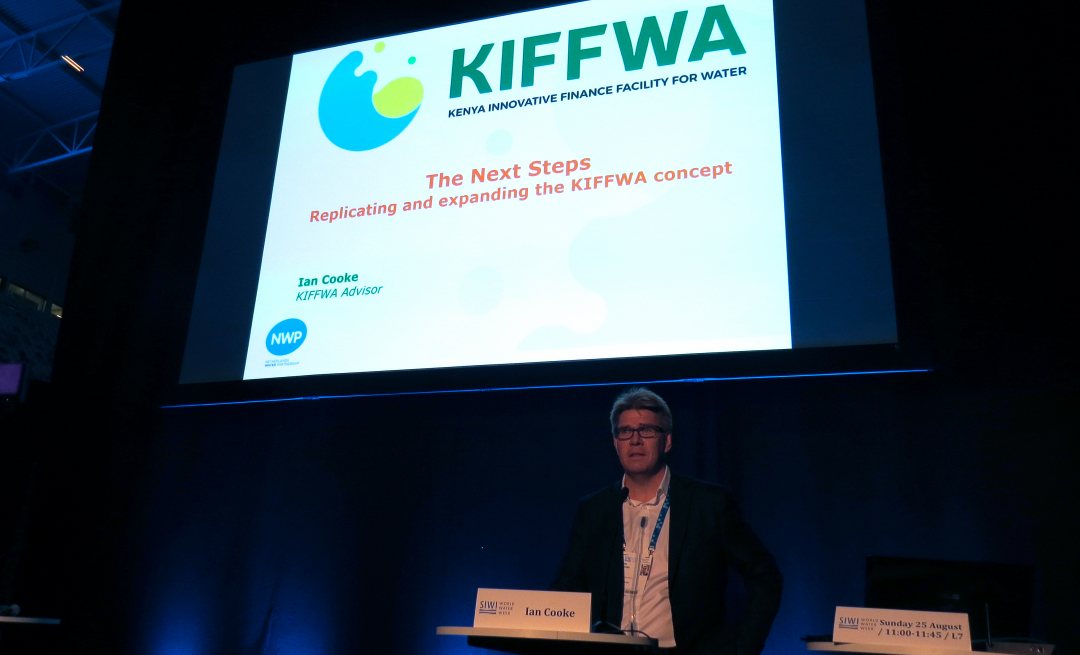
No water tariff differentiation for the poor
Too much regulation makes it difficult to commercialize the supply of drinking water, said CEO Josef Murabula of the Kenya Innovative Finance Facility for Water (KIFFWA) at the special session on the KIFFWA-initiative. The commercialization is welcomed to enable water utilities in fast developing cities to attract private investors to invest in the expansion of the distribution network. The KIFFWA fund has been established, with help from the Netherlands, to bring water projects to a financial close, involving additional money from private investors. So far the fund has managed to bring 15 water projects to a closure. According to Ian Cook, social KIFFWA advisor, the fund deliberately avoids a tariff differentiation for the poor. As a temporary solution it is possible for governments to make an additional investment that is specially earmarked to enable the delivery to the poor for a certain period.
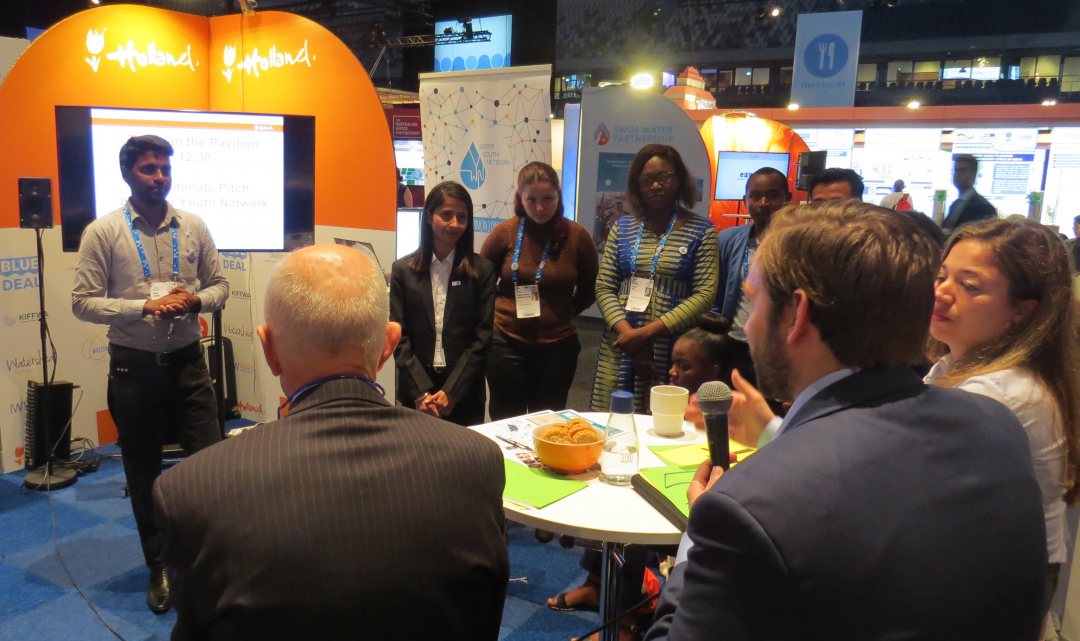
More ‘banana’: a hygiene patch
Like last year, the Water Youth Network had gathered its members from all over the world to join the water event in Stockholm. Ten of them had been invited to pitch an innovative solution for the RWSN competition at the Dutch pavilion. The jury gave their highest score to Everlyne Nabakka from Uganda. She has set up her own company for the production and sales of Eco Uga hygiene pads that are made from fibres of banana plants. The local production from cheap materials makes the patches affordable for young girls in Uganda. The jury praised Nabakka for her clear pitch and the fact that the patches were made locally.
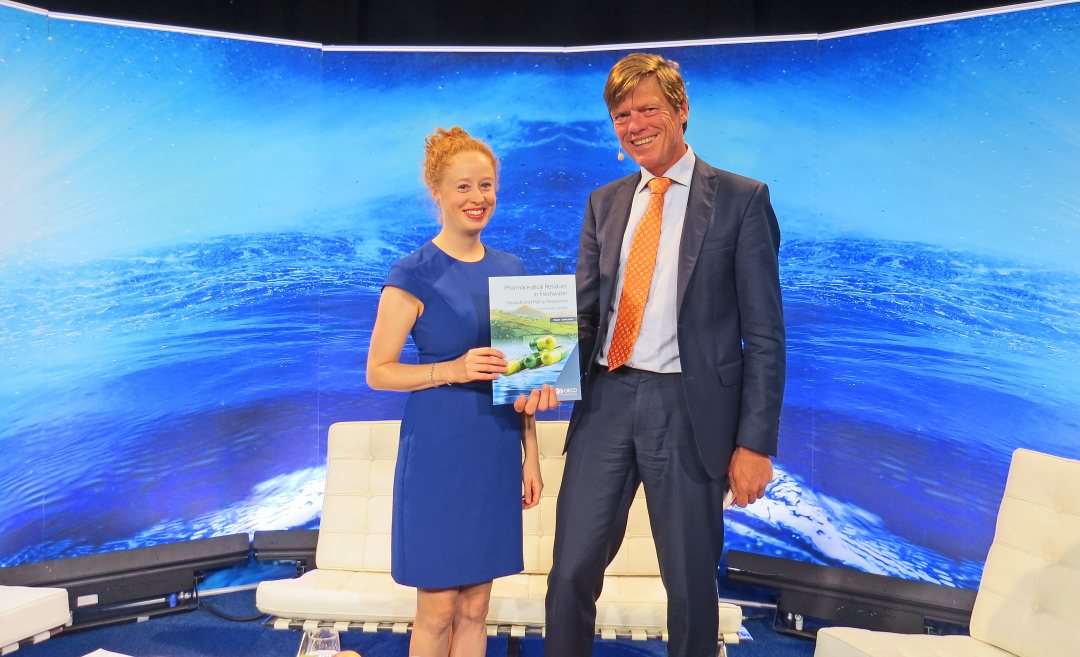
Beyond the monitoring of pharmaceutical residues
Hannah Leckie (left) of the Organisation for Economic Cooperation and Development (OECD) and Marc de Rooy (right) of the Dutch ministry of Infrastructure and Water management presented the preliminary version of a OECD report on pharmaceutical residues in fresh water. The report looks beyond the monitoring of the residues and advises governments to opt for a life-cycle approach to prevent pharmaceuticals to end up in water bodies. The approach starts with convincing doctors to reduce unnecessary use and release of pharmaceuticals. Producers of pharmaceuticals can be stimulated to re-engineer their products and make them more environmental friendly. Pharmacies can be mobilized to start a collection and disposal programme. The final step is to upgrade waste water treatment plants. According to Marc de Rooy the Dutch government implemented this approach in 2018 and it has resulted in more awareness amongst healthcare professionals and the general public. It has also boosted the development of new water treatment technologies.
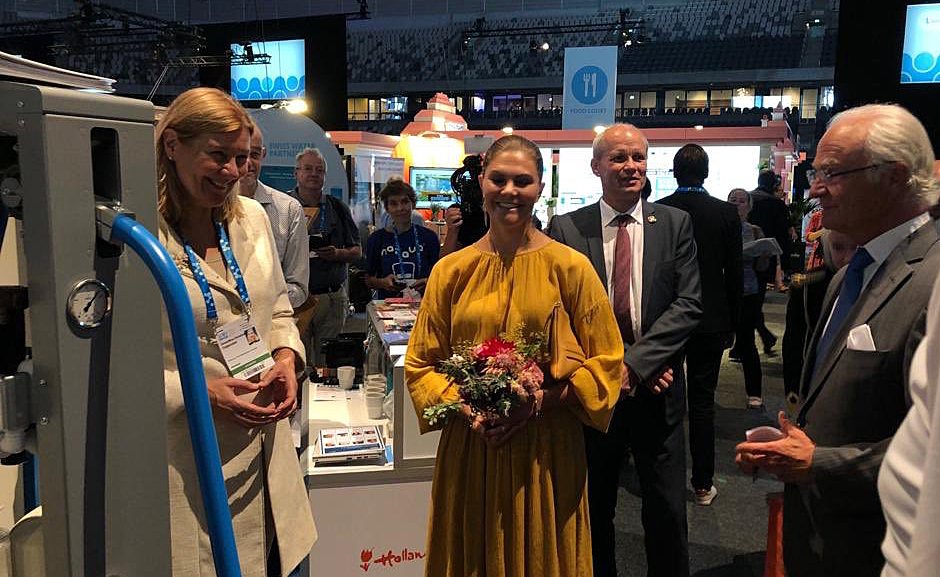
Royal attention for hand powered Villagepump
King Carl XVI Gustav of Sweden (right) and crown princess Victoria (middle) visited the Dutch pavilion where Joost de Waard demonstrated the hand powered Villagepump. By moving a handle the installation provides clean water – meeting WHO-standards – from any fresh water source, including ponds, lakes and streams. The Villagepump is equipped with a UF-filter that is automatically back-washed. Optionally, an active carbon filter can be added. The Villagepump is operational in rural areas in 14 different countries.
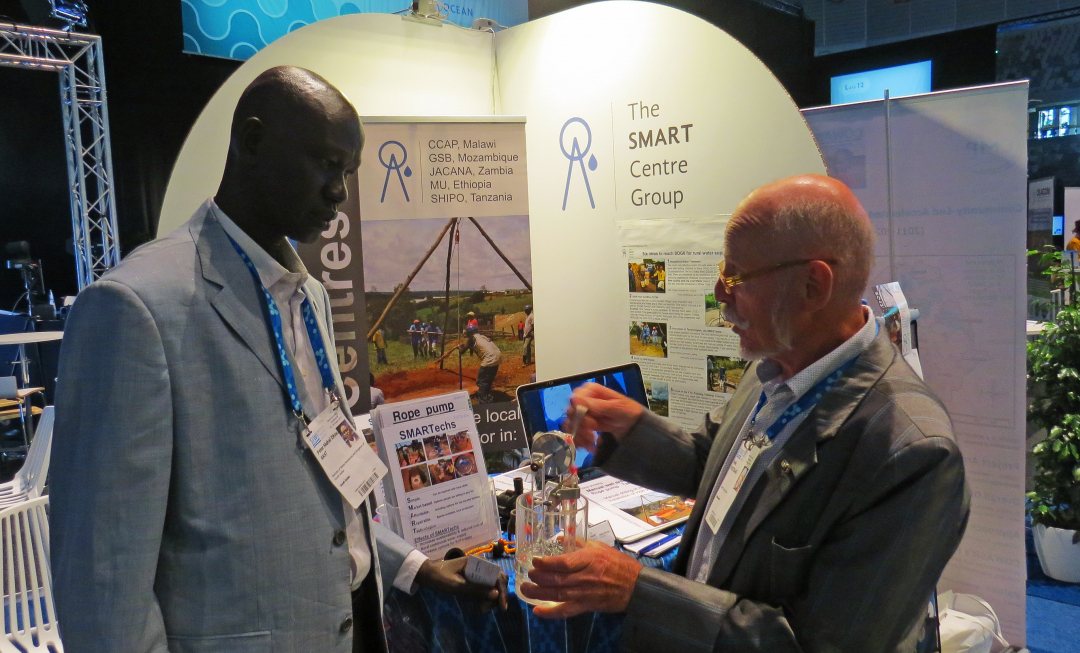
New Smart centre for South Sudan
Director General Peter Mahal Dhieu Akat (left) at the Ministry of Water Resources and Irrigation in South Sudan announced the establishment of a Smart Centre in his country. He expects that the centre will bring his country more practical skills for drilling bore holes for ground water and placing hand pumps. According to Mr Akat, South Sudan lacks a facility for such vocational training of water technicians. Henk Holtslag (right) of the Smart Centre Group expects the new training facility to become operational later this year. It will be the fifth Eastern African country to have a facility to train water technicians in drilling wells, and in manufacturing and selling hand and rope pumps. The Smart Centres also train entrepreneurs to sell these affordable and repairable water supply products in rural areas. By building a local supply chain that includes skills and maintenance, Holtslag experienced that this approach is the best guarantee to avoid wells to dry up and pumps to be left unused when broken down.
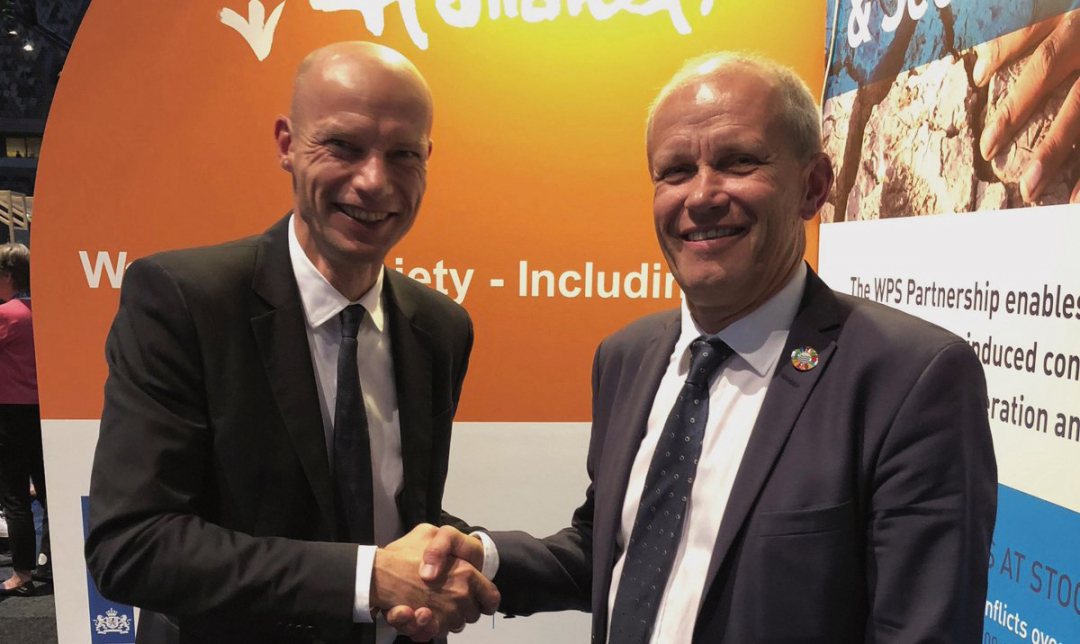
Next year´s theme: water and climate
Executive Director Torgny Holmgren (right) of the Stockholm International Water Institute (SIWI) and Dutch special water envoy Henk Ovink (left) met at the Dutch pavilion to mark the agreement on a new strategic collaboration between SIWI and the Dutch government. The collaboration will combine Swedish and Dutch efforts to bring the water agenda to other communities, such as climate adaptation, agriculture, city development and energy supply. The Dutch government will intensify its contribution to the next editions of Stockholm World Water Week that will have the themes ‘water and climate’(2020) and ‘valuing water’ (2021).
The Stockholm World Water Week 2019 took place from 25 to 30 August.




